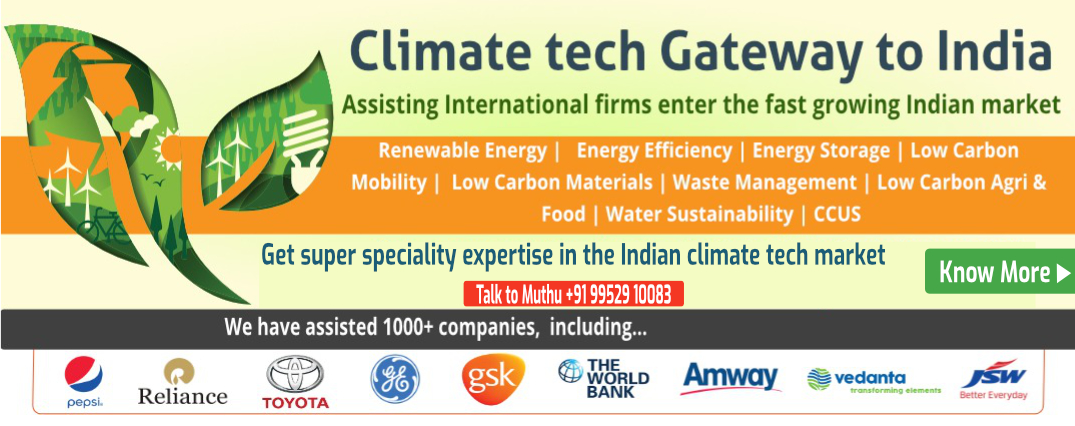This post is a part of Climate G2I Intelligence series from Energy Alternatives India (EAI), India’s leading climate-tech consulting firm.
G2I stands for Gateway 2 India, and provides comprehensive market intelligence and go-to market assistance for International firms entering the Indian climate-tech market. More about Climate G2I from here
A recent press release from ANI announced a significant investment by Japanese utility company Chubu Electric in OMC Power, a leading renewables energy player in India. This strategic partnership signifies a growing interest in harnessing renewable energy to empower rural communities across the nation.
OMC Power has a commendable track record of bringing clean energy solutions to underserved rural areas. With a current reach exceeding 100,000 consumers in Uttar Pradesh and Bihar, this collaboration with Chubu Electric aims to significantly amplify their impact. The ambitious goal is to provide clean energy access to an additional 5,000 villages, transforming the lives of millions of people.
The Indian renewable energy sector is a complex ecosystem with a multitude of stakeholders playing critical roles in its development and success. It includes
Net Zero by Narsi
Insights and interactions on climate action by Narasimhan Santhanam, Director - EAI
View full playlist- Renewable energy developers, like Independent Power Producers (IPPs) and Captive Power Users,
- Original Equipment Manufacturers (OEMs) like Solar PV Module Manufacturers, Wind Turbine Manufacturers, and Biomass and Waste-to-Energy Technology Providers.
- Suppliers: Component Suppliers and Balance of Plant (BoP) Suppliers.
- Financial Institutions: Commercial Banks and Infrastructure Investment Funds.
- Government and Regulatory Bodies: Ministry of New and Renewable Energy (MNRE), State Nodal Agencies, and Central Electricity Regulatory Commission (CERC).
- Adjacent Value Chain Stakeholders: Power Grid Companies, Distribution Companies, and Research and Development Institutions.
Understanding stakeholder interdependence is crucial for the smooth functioning and sustained growth of the Indian renewable energy sector.
The Indian renewable energy sector is witnessing a surge in strategic collaborations and alliances, fostering innovation, knowledge sharing, and market expansion. Examples include the Green Fuels Alliance India (GFAI) and the India-USA Strategic Clean Energy Partnership. These partnerships highlight the growing emphasis on collaborative efforts in the Indian renewable energy sector.
International companies are also making significant investments in India. Chubu Electric (Japan) invested in OMC Power, Ørsted (Denmark) partnered with Greenko for an offshore wind project, and Shell (Netherlands) partnered with Tata Power to explore renewable energy opportunities.The Indian government has also implemented several key policies and initiatives to accelerate the growth of the renewable energy sector, including feed-in tariffs (FiTs), Renewable Energy Purchase Obligations (RPOs), tax benefits, land acquisition facilitation, and a focus on domestic manufacturing. These policies, coupled with factors like rising fossil fuel prices, growing environmental concerns, and technological advancements, are driving significant growth in the Indian renewable energy sector.
This post is a part of Climate G2I Intelligence series from Energy Alternatives India (EAI), India’s leading climate-tech consulting firm.
G2I stands for Gateway 2 India, and provides comprehensive market intelligence and go-to market assistance for International firms entering the Indian climate-tech market. More about Climate G2I from here







 Our specialty focus areas include
Our specialty focus areas include




